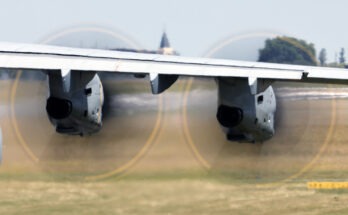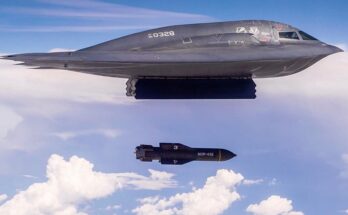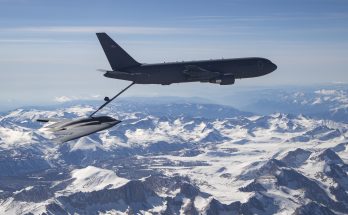
In an escalation in the ongoing standoff between Iran and Saudi Arabia, the Saudi oil facilities Abqaiq and Khurais were hit by a brazen attack over the weekend, damaging the kingdom’s oil output.
On Saturday morning, both Abqaiq and Khurais came under attack, resulting in infrastructure damage that has halved the kingdom’s oil production. Ansar Allah, a Yemeni rebel group backed by Iran, claimed responsibility for the strikes, which it said involved nearly a dozen unmanned aerial vehicles. The insurgent group has previously carried out a number of strikes on Saudi Arabia, as well as one on the United Arab Emirates, using drones and missiles.
The U.S., however, has centered the blame for this weekend’s attacks on Iran, a charge Tehran rejects. U.S. Secretary of State Michael Pompeo said in a statement, “There is no evidence the attacks came from Yemen.” Instead, Washington has said that the strikes may have originated from Iraq, which Baghdad denies, or from Iranian territory itself. Ridiculing the American policy of “maximum pressure” on Iran, the Iranian foreign minister tweeted that the U.S. has turned to a policy of “max deceit.”
In a tweet on Sunday, U.S. President Donald Trump said, “There is reason to believe that we know the culprit, are locked and loaded depending on verification, but are waiting to hear from the kingdom as to who they believe was the cause of this attack, and under what terms we would proceed!” He followed this up with another tweet on Monday that questioned Iran’s denials of the Abqaiq strikes.
Saudi Arabia oil supply was attacked. There is reason to believe that we know the culprit, are locked and loaded depending on verification, but are waiting to hear from the Kingdom as to who they believe was the cause of this attack, and under what terms we would proceed!
— Donald J. Trump (@realDonaldTrump) September 15, 2019
Remember when Iran shot down a drone, saying knowingly that it was in their “airspace” when, in fact, it was nowhere close. They stuck strongly to that story knowing that it was a very big lie. Now they say that they had nothing to do with the attack on Saudi Arabia. We’ll see?
— Donald J. Trump (@realDonaldTrump) September 16, 2019
Details about the attack – such as the munitions used – are still emerging. Initial reporting noted the involvement of drones, but the attacks may well have involved cruise missiles as well. The Wall Street Journal, citing people familiar with the issue, said that Saudi oil company ARAMCO has determined that it was hit by a missile salvo. An unnamed senior Trump administration official told the American media outlet ABC News that almost a dozen cruise missiles and over 20 UAVs were launched from Iran to target the facilities, which are located in eastern Saudi Arabia.
These strikes are the latest in a murky proxy battle between Iran and Saudi Arabia, the latter backed by Washington. Oil tanker sabotage, ship seizure, missile attacks, and air strikes have all raised the stakes as Washington seeks to maintain its “maximum pressure” campaign on the Iranian government. Direct warfare has thus far been avoided, though President Trump said he had ordered, then canceled, air strikes in retaliation for Iran’s shoot-down of a reconnaissance drone in June.
This weekend’s attacks may imperil diplomacy between President Trump and his Iranian counterpart, President Hassan Rouhani. President Trump has left the door open for dialogue with President Rouhani on Iran’s nuclear program, and American officials had suggested that President Trump would seek to hold a meeting at the sidelines of the U.N. General Assembly later this month. The acrimonious exit of National Security Advisor John Bolton, who is fiercely opposed to Iran, seemed to indicate that the Trump administration is seriously planning to engage in dialogue. The agenda for such talks is uncertain, though they undoubtedly could be expected to tone down the tension between the U.S. and Iran, if nothing else. President Trump left the nuclear deal negotiated by his predecessor, President Barack Obama, over three primary complaints: the deal’s expiring restrictions on the Iranian nuclear program, the fact that the deal did not cover Iran’s missile arsenal, and Iran’s support for regional militant groups.
Iran, however, poured cold water on the idea on Monday. Foreign Ministry spokesman Abbas Mousavi said, “We have neither planned for this meeting, nor do I think such a thing would happen in New York.” President Rouhani had previously seemed amenable to the idea of dialogue, before clarifying that Tehran seeks the removal of American sanctions on its economy before it will hold talks with Washington. The timing of the strikes just ahead of the possible summit raises the possibility that Iran’s Islamic Revolutionary Guard Corps, which controls much of the country’s missile arsenal and is in charge of liaison with militant organizations, may have sought to torpedo a meeting.
Attacks on Abqaiq and Khurais come as an inflection point for Saudi Arabia on its present foreign policy course. President Trump’s tweet, saying that the U.S. knows the culprit but is waiting on Saudi Arabia’s findings, puts the ball in the kingdom’s court, by implication giving Saudi Arabia an opportunity to drive the response, though the mercurial nature of the American president makes a firm pronouncement on his strategy difficult. While Riyadh wants to contain Iran, it is apparent that the Iranian government is well-equipped to make Saudi Arabia feel pain as well. Its missiles are becoming more developed and the country has strong ties with militant organizations that can carry out long-range operations that Iran is able to deny involvement in. Among other aims, Iran has sought to make the regional status quo unsustainable for Saudi Arabia in order to take pressure off itself. Tehran has regularly warned that should its oil exports be hampered, it may resort to action against other countries’ commercial activity. The IRGC appears to be carrying out those threats.
Though the Saudi military is well-armed, the kingdom’s military campaign in Yemen as implemented in practice has become counterproductive to the goal, as Ansar Allah has become more of a threat to Saudi Arabia and more integrated into Iran’s regional policy as time goes on. Even if these latest strikes did not originate from Yemen, plenty more have, and these are able to jeopardize Saudi Arabia’s primary source of income, the proceeds of oil sales. Yemen’s capital, Sana’a, remains in Ansar Allah’s hands. Yemen’s U.N.-recognized and Saudi-backed president, Abdrabbuh Mansur Hadi, is facing a fight with a separatist group seeking to revive South Yemen, which takes pressure off the fronts with Ansar Allah. Elsewhere in the region, some of the militias that are part of Iraq’s Popular Mobilization Forces pose a clear threat to Saudi Arabia. Riyadh is without good options for dealing with these militias. It has probably sought to reach out to figures like Moqtada al-Sadr to find a counterweight to Iran, but al-Sadr’s appearance in Tehran beside Supreme Leader Ayatollah Ali Khamanei and IRGC Quds Force commander Qassem Soleimani earlier this month underscores his proclivity toward playing sides off each other.
Perhaps, then, Saudi Arabia may reconsider its approach. Rivalry between Iran and Saudi Arabia is fierce, but the kingdom has in the past entertained dialogue with a fierce rival to de-escalate crises. In the 1960s, Gamal Abdel Nasser’s Egypt backed a revolutionary government in North Yemen, with an eye toward further exporting revolutions to the region’s Arab monarchies, namely Saudi Arabia. Saudi Arabia backed the former authority in North Yemen, Imam Mohammed al-Badr, against the Egyptian military, but eventually engaged Nasser in diplomacy. Though not the greatest example – it was more for the 1967 war with Israel than diplomacy with Saudi Arabia that Egypt left North Yemen – the effort demonstrates a willingness to engage in conciliatory policy, even against what is viewed as an existential threat. Saudi Arabia might not even need to talk to Iran itself. It could instead give the U.S. its private blessing to do so while publicly remaining defiant.
Such a change in foreign policy direction is the sort of shift Iran is seeking to engender through its missiles and proxies. Whether Riyadh obliges is an open question, but the kingdom could clearly use a ceasefire, at the least.
Military markets analyst, covering Eurasia, Middle East, and Africa.




